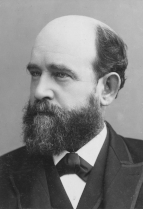https://schalkenbach.org/exploring-universal-basic-income-and-its-imple…
A Commonwealth Proposal in Canada
In Canada, a group of UBI advocates who make up an organization called Common Wealth Canada propose that collecting value from Canada’s land and resources would create $241 billion dollars of wealth annually that could be distributed to Canadians. They propose that it is enough to provide each adult with up to $7,600 per year in dividends.
One key factor of Common Wealth’s proposal that signals promise is their funding plan. While Alaska’s Permanent Fund relies on oil revenue, a fundamentally finite natural resource, they propose that a UBI in Canada should be funded through land and resource rents. In this model, government-owned, public goods such as land, resources, or infrastructure could be rented to private corporations or individuals and the revenue earned would fund a UBI. This concept has also been referred to as “asset monetization” or “asset recycling”.
For instance, government entities could lease unused or underutilized public assets and infrastructure such as vacant lots, buildings, parking facilities, or airports. Airports are often large revenue generators for cities and their value will only increase as demand for air travel continues to rise. About 98 percent of the 3,300 American airports tracked by the Federal Aviation Administration are owned by public entities. One study found that 31 of the U.S’s largest airports have a market value of $131 billion dollars and could generate billions of dollars to fund government programs if they were leased to private partners.
This model is not new. Resource rents recently funded public transportation and highway projects in Australia. In New South Wales, the government leased its electrical transmission system to a private partner and raised $2.19 billion dollars to renovate and expand the Sydney Metro System, light rail and several highways.
Frank De Jong, an environmental economist, sees a bright future in utilizing resource rents in America. He emphasized that the wealth generated through these assets currently rests in the hands of a monopoly, but recognizing their value as a common good means that everyone has a right to their share and deserves to benefit.
“The only way to permanently eliminate poverty is to 1) break the monopoly owners’ grip on the unearned increment 2) shift the tax burden off the productive economy and onto the speculative economy and 3) distribute the rental value of the commons to all equally as a citizens’ dividend or UBI,” said De Jong.
